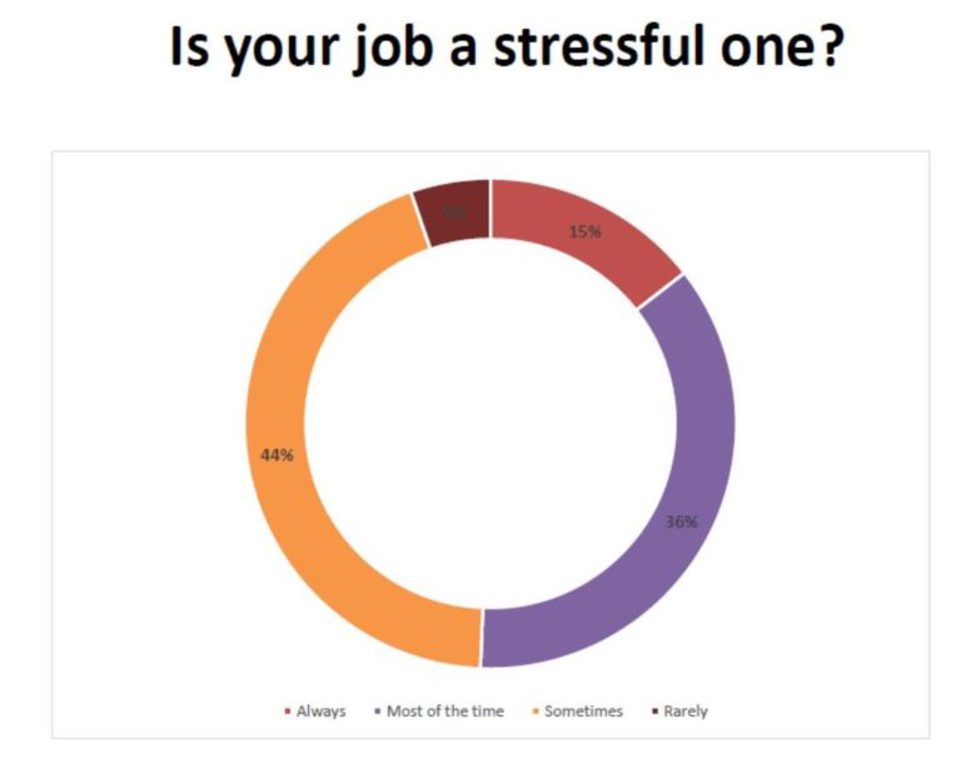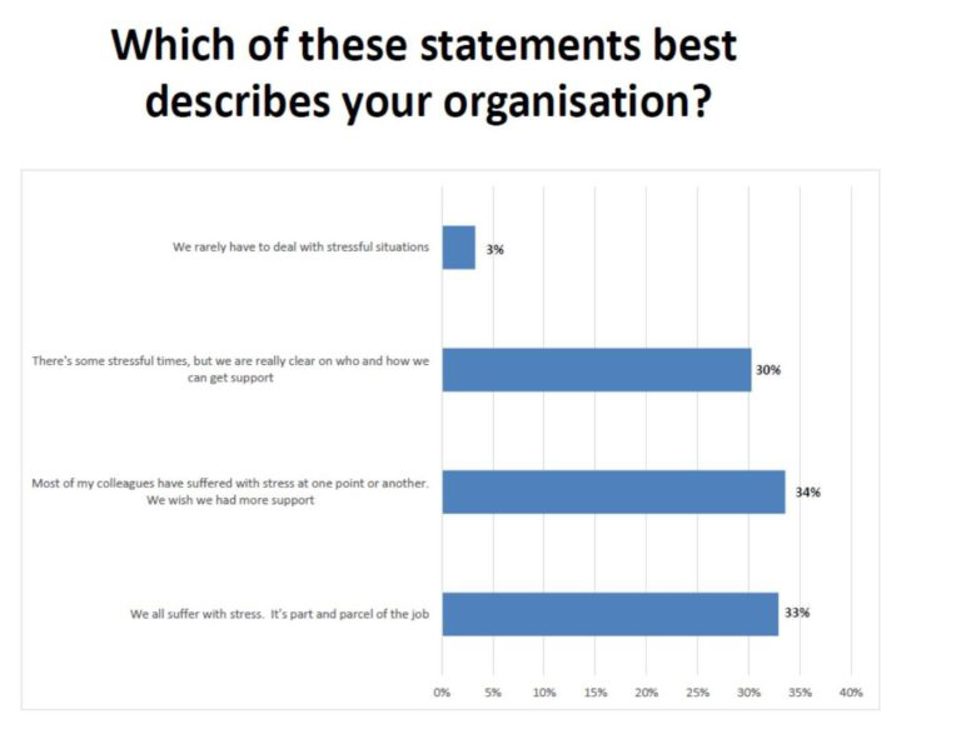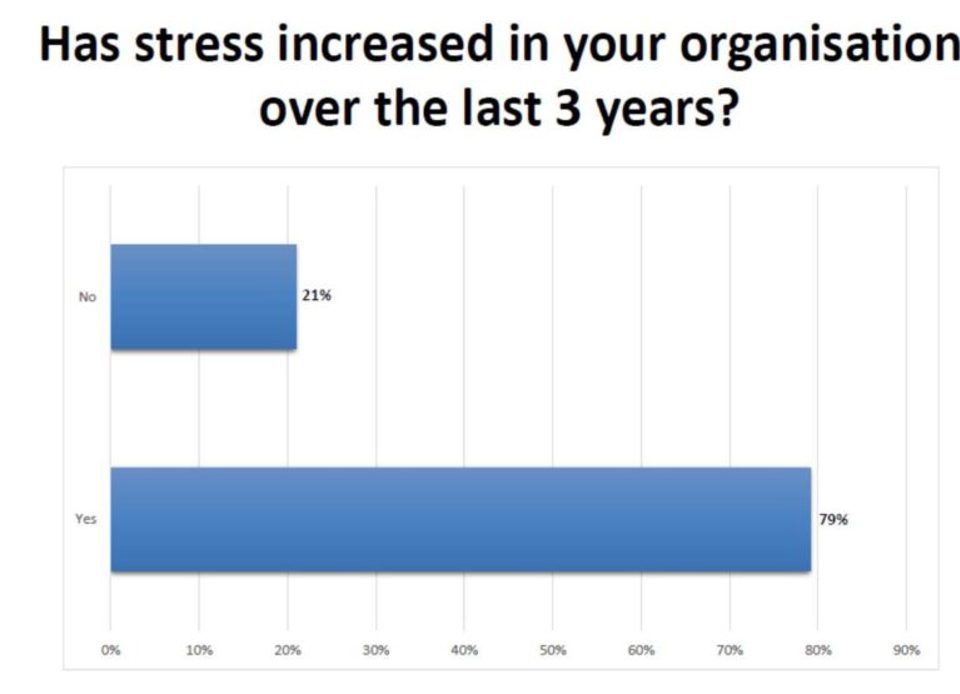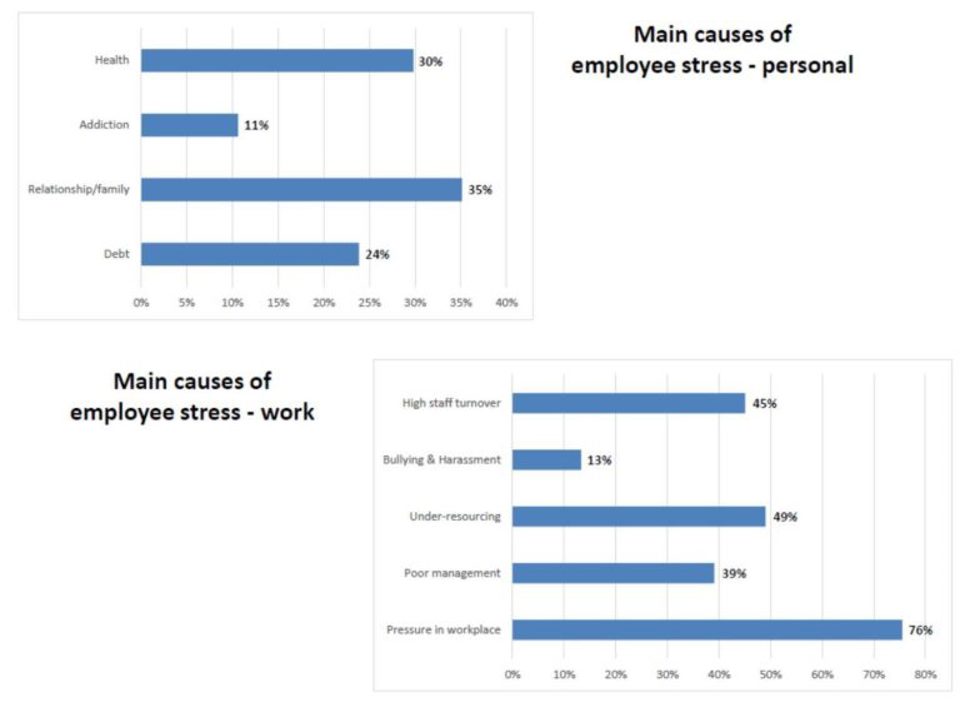Blog. “The black dog still exists” … combating stress and depression in the workplace
May 18, 2018 | Author Mark Lewis
Author: Mark Lewis
This week is Mental Health Awareness Week. To mark it, Hospitality Action and HR in Hospitality co-hosted an event yesterday morning at the Royal Lancaster London, to shine a light on the issue of stress in the hospitality workplace.
Managing your team’s stress levels is important for two reasons. First, keeping its workforce healthy and happy is the right thing for a caring and enlightened employer to do. Second, a healthy and happy workforce is also a work-ready and productive one – stress can result in high sickness absence, high staff turnover, low morale and under-performance.
To get a sense of the scale of issue, prior to the event we ran a survey with media brand Dewberry Redpoint and comms agency Mercieca.
The results paint an alarming picture.

We began by asking: “is your job a stressful one?”
Only 5% of respondents reported that their job is rarely stressful. A worrying 80% told us that their job is stressful sometimes or most of the time. And 51% – over half! – described their job as being stressful most or all of the time.
Our next question asked respondents to choose the one statement from four options that best described their place of work.
Just 3% said they rarely deal with stressful situations. Lucky them …
Roughly a third, 30%, chose “there are some stressful times, but we are really clear on how we can get support.” Another third, 34%, reported that “most of my colleagues have suffered with stress at one point or another. We wish we had more support.” And 33% selected “we all suffer with stress, it’s part and parcel of job.” This last answer is most alarming: can a third of hospitality professionals really be resigned to living with stress on a daily basis?


Question three asked whether stress levels had increased over the past three years. With 79% of respondents reporting that it had, we are clearly dealing with a worsening problem.
Next, we asked what were the main causes of stress at home and in the workplace. At work, pressure was the biggest cause, referenced by 75% of respondents. Though poor management was mentioned by 39% of respondents, it was reassuring that only 13% cited bullying/harassment as a cause of stress – still 13% too many, but a sign that the more Neanderthal style of kitchen management is finally becoming a thing of the past.
In the home, respondents pointed to relationship/family issues (35%), health issues (30%), debt issues (24%) and addiction issues (11%).
Our research asked if the organisations where those surveyed worked offered mental health awareness training. The answer was “yes” for just 17% of managers, only 9% of employees, and 16% for both.
Meanwhile, 56% of respondents thought that employees are more likely to discuss mental health issues with employers than previously. The 44% who answered “no” used worrying vocabulary like “stigma”, “taboo”, “weak”, “embarrassed”, “macho”, “brutal”, “scared” and “militaristic” …

If your business could do more to support employees with mental health issues or any other challenges, please do consider our Employee Assistance Programme.
Research presented, I then chaired a discussion panel featuring the Royal Lancaster’s GM and a great advocate of HA, Sally Beck; Hawksmoor HR manager and EAP client Sofia Gassne; Law Express MD, Karen Archer; Work with Nest director, Maggie Campbell; and Kate Nowlan, CEO of our EAP partners, CIC.
At the end of the session, something extraordinary happened. A hotelier called Darryl took the mike and proceeded to tell us his story of depression and of pulling back from the brink of despair. He describes his experiences frankly at his blog, Mind the Gap.
I’ll leave Darryl with the last word, as I did yesterday.
“The black dog still exists, but it doesn’t mean I’m bad”.
